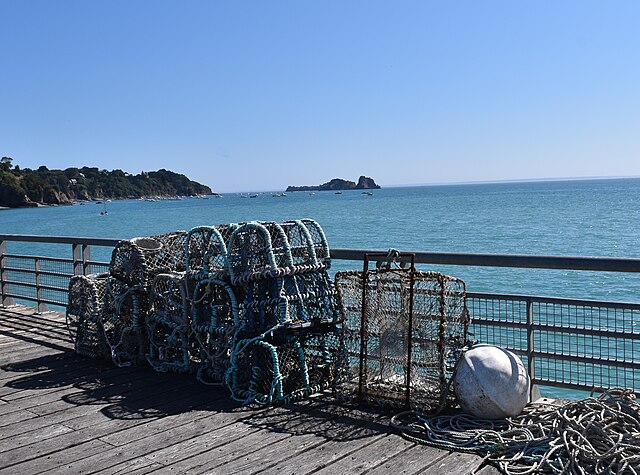A court has ruled that the lobster industry of Maine must keep using electronic trackers aboard fishing vessels despite staging lengthy resistance.
The First Circuit Court of Appeals in Boston, Ma., ruled in favor of the tracking regulation on November 19, 2025.
Since December 15, 2023, Mainers have been using electronic trackers on their boats round the clock to reduce right whale entrapment.
The industry labels this 24/7 surveillance as tantamount to “unreasonable search and seizure,” reports the Associated Press.
5 lobstermen filed an initial November 2024 lawsuit which they lost on grounds of a “closely regulated” industry, hence the recent appeal.
Appellant Frank Thompson, a lobsterman, cited in the just concluded hearing that continuous tracking contravened the Fourth Amendment on privacy.
He argued that every time the vessel is adrift the system maintains minute monitoring that encapsulates the lobsterman himself.
But appeal judges found that the surveillance devices only record specific data on the fishery and no more.
Their reasoning invokes the purpose of installing the trackers in the first place, namely whale traceability and lobster conservation. Regarding conservation, research finds a gradual decline in the lobster resource off the Gulf of Maine since 2016.
But even though Maine’s yearly haul has fallen to below 90 million pounds as of 2024, it still surpasses that of the 2000s.
Indeed, 2008’s catch on the Maine coast clocked only 69.7 million pounds due to a 1997 harvest regulation, per the Maine Government.
What has truly changed much since then is a general increase in prices of the always popular seafood.
Wholesale Prices Down-Drift
Interestingly, at the time the court was ruling against the fishers, prices were not increasing but rather retreating.
Wholesale live lobster prices slid this week for mainly quarter-pounders and chix to $9.99 a pound.
Hard shells were still accessible from $10.99 a pound for 1.25 pounders, at the benchmark Fishman’s Market in New Bedford, Massachusetts.
1.5 to 3-pound hard shell lobster meanwhile were costing $13.99 a pound in the week ending November 21.
Although the price drift has nothing to do with the pro-tracking ruling, it reflects the delicacy of the Maine lobster industry to external changes. As such, the data section below reviews one of these external changes, namely the costs of installing tracking systems.
Maine Lobster Industry Electronic Tracking Costs Statistics
On top of mandatory lobster fishing license fees, Mainers must now avail state-provided electronic tracking devices. Beginning mid-December 2023, the State of Maine mandated federal lobstermen to install electronic GPS trackers on their boats under Addendum XXIX. In late 2023, the state was planning a budget estimate of $4.6 million for purchasing the trackers by 2027. Out of this kitty, $472,000 would go to aid lobstermen avail safety gear that would reduce whale entrapment.
According to industry regulator, the Atlantic States Marine Fisheries Council (ASMFC), the devices come from authorized select makers. One such is Boat Command , whose devices cost between $225 and $548 per unit, as of November 2025.
On top of these costs, federal lobstermen in Maine must apply for a fishing licences worth $67. Non-resident applicants in turn pay a massive $339. Maine’s licenses are the most expensive among East Coast states. Most are in the range of $22 (Rhode Island) for residents to $300 (Massachusetts) for non-residents.
